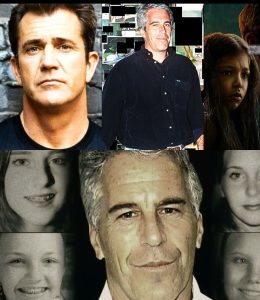Hollywood Stands Still: Sylvester Stallone’s Legacy and the Enduring Spirit of a Fighter
For nearly five decades, Sylvester Stallone has stood as one of Hollywood’s most enduring icons — a storyteller who turned pain into poetry and perseverance into art. Now, as the film industry pauses to reflect on his extraordinary life and influence, it’s clear that Stallone’s story is not just one of cinematic triumph but of resilience that continues to inspire across generations.
Tonight, Hollywood isn’t celebrating a premiere or a new blockbuster. Instead, it’s remembering a legacy — that of a man who built his career from the ground up, defying every obstacle to become a symbol of hope, courage, and grit.
The Underdog Who Rewrote Hollywood
Born in 1946 in Hell’s Kitchen, New York, Sylvester Stallone entered the world under difficult circumstances. Forceps used during his delivery damaged a facial nerve, leaving part of his lip and tongue paralyzed — a trait that would later shape his distinctive voice.
Growing up poor and often rejected by the acting industry, Stallone’s journey was anything but smooth. Before fame, he worked as an usher, fish cleaner, and even sold his dog for $40 when times were desperate. But his determination to tell his own story would change not only his life but the entire landscape of American cinema.
In 1975, after watching a boxing match between Muhammad Ali and Chuck Wepner, Stallone sat down and wrote Rocky — the story of an unknown fighter who refuses to quit. He finished the screenplay in just three days.
Every studio wanted the script, but none wanted him in the starring role. Stallone refused every offer that didn’t include him as the lead. Against industry logic, United Artists took a gamble — and Rocky became a global phenomenon, winning three Academy Awards including Best Picture.
It wasn’t just a film. It was a statement — that courage and persistence could triumph over circumstance.
A Myth for the Modern Age

Stallone’s genius wasn’t just his acting or directing talent. It was his understanding of what audiences needed to believe about themselves. In an era marked by political cynicism and social unrest, Rocky gave people a story of hope through hardship.
Then came Rambo, his second great creation — a character embodying the trauma and disillusionment of the Vietnam War generation. While Rocky represented endurance, Rambo symbolized survival. Both characters revealed different sides of the American soul: one seeking meaning through struggle, the other trying to heal from it.
Film critic Leonard Maltin once remarked, “Stallone didn’t just play heroes — he explored what made them human.”
Through these roles, Stallone transformed the action genre from spectacle to emotional narrative. His films carried a rare combination of muscle and meaning — the belief that strength comes not from dominance, but from persistence.
Beyond the Screen: A Man of Paradox
Off-screen, Stallone was far more complex than his tough-guy persona suggested. His success brought both acclaim and isolation. Critics often dismissed his early writing and direction as commercial, yet those who studied his work closely found a deeply reflective artist preoccupied with mortality, aging, and redemption.
“You have two choices in life,” Stallone once said. “You can be bitter, or you can get better.”
Even as he grew older, Stallone never stopped evolving. Rocky Balboa (2006) wasn’t just a return to the ring — it was a meditation on time, grief, and resilience. Later, in Creed (2015), he passed the torch to a new generation while exploring what it means to face decline with dignity.
Those performances earned him not only awards but renewed respect as an actor capable of profound emotional range.
The Voice of Determination

Few quotes have echoed through popular culture like Stallone’s line from Rocky Balboa:
“It ain’t about how hard you hit. It’s about how hard you can get hit and keep moving forward.”
That sentiment, distilled from Stallone’s own philosophy, transcended cinema. It became a cultural mantra — repeated in locker rooms, classrooms, and motivational speeches worldwide.
When asked where that line came from, Stallone said simply, “Life. Every punch I’ve ever taken.”
Even at 70 and beyond, he continued to train, write, and act with the same ferocity that fueled his early career. His later projects — from Creed II to Tulsa King — showed not decline, but reinvention. He proved that reinvention wasn’t about changing who you are, but rediscovering why you began.
A Legacy of Impact
Tributes to Stallone have poured in from across the entertainment and sports worlds. Arnold Schwarzenegger, his longtime friend and rival, once said:
“We fought each other on screen, but off-screen, we fought the same fight — to prove ourselves. Stallone was more than a movie star. He was a force.”
Athletes from Mike Tyson to Serena Williams have cited Rocky as an inspiration, and NASA once tweeted a line from the film after a successful mission: “One step at a time, one punch at a time, one round at a time.”
Outside the Philadelphia Museum of Art, where the iconic Rocky Steps stand, fans still run daily — some in silence, some humming Gonna Fly Now. They aren’t just celebrating a movie. They’re celebrating the spirit of an idea: that the fight itself is what gives life meaning.
The Philosopher of the Underdog
Behind the action star was a writer and thinker who explored the psychology of ambition and failure. Stallone often spoke about his fascination with time — how it defines human potential. “We don’t own time,” he said in an interview. “We just borrow it. The question is: what do we do while we have it?”
That awareness gave his later work an almost spiritual tone. In interviews, he reflected on his mistakes with humility and gratitude, saying that each setback “was a lesson wrapped in pain.”
His story, from poverty to prominence, became more than an actor’s journey — it became a parable about endurance, forgiveness, and legacy.
A Family Man, at Peace with Time

In recent years, Stallone’s focus has turned toward family. Married to entrepreneur Jennifer Flavin since 1997, he often credits her and their daughters with grounding him. “They are the calm in my storm,” he told People magazine.
His social media presence — once filled with training videos and movie updates — has evolved into moments of reflection: painting in his studio, writing at his desk, or sharing quiet advice about life’s battles.
He no longer speaks about legacy in terms of fame or film. “If I’m remembered,” he once said, “I hope it’s for reminding people that they could get back up.”
The Eternal Fighter
As Hollywood reflects on his career, Sylvester Stallone’s influence remains unmistakable. Few figures have bridged the gap between blue-collar realism and cinematic grandeur so seamlessly.
His life — from the broken beginnings of Hell’s Kitchen to the global recognition of Rocky — stands as a testament to self-belief. He became not just an actor or director, but a symbol of the endurance that defines the human condition.
The lights on Hollywood Boulevard will continue to shine, but Stallone’s story belongs to something larger than fame. It belongs to everyone who has ever faced failure, rejection, or loss and chosen to rise anyway.
And somewhere, on screens across the world, his voice will keep echoing — gravelly, determined, and timeless:
“Keep moving forward.”
Sources
-
Variety – “Sylvester Stallone Reflects on 50 Years in Film” (2024)
-
Rolling Stone – “The Enduring Philosophy of Rocky Balboa” (2023)
-
BBC Culture – “Stallone: The Writer Behind the Fighter” (2024)
-
People – “Sylvester Stallone on Family, Aging, and Legacy” (2024)
-
Smithsonian Magazine – “The Cultural Impact of Rocky and Rambo” (2025)



